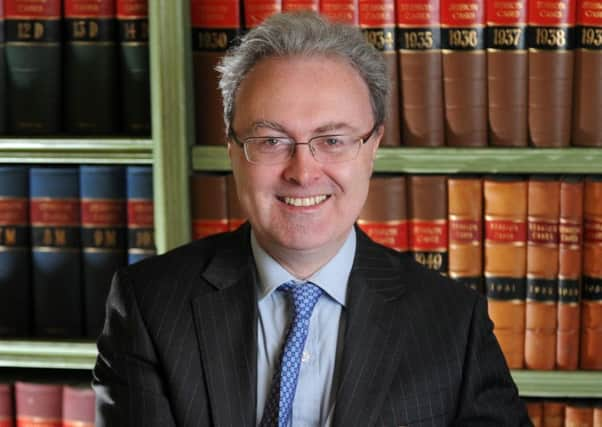Lord Advocate urged to act on political meddling in cases


In an article for The Scotsman, Gordon Jackson QC says the prosecution system risks paralysis because individuals fear taking difficult decisions, with judges losing confidence in the judgement of prosecutors not to press ahead with “unsafe” cases.
Mr Jackson warns that wrong decisions are being made “because of how that might play out in the popular press”, and claims prosecutors are being unduly influenced by family members to refuse reduced charges.
Advertisement
Hide AdAdvertisement
Hide AdIn an open letter to the new Lord Advocate, James Wolffe QC – his predecessor as dean – Mr Jackson calls for a culture change in the Crown Office to return it to a position of “very robust independence”.
“There is a perception that prosecutors, from Advocate Depute to junior fiscals, are very reluctant to make any decision,” Mr Jackson writes. “In a case of my own, an experienced fiscal refused to drop a case she knew to be hopeless because she can’t face her decision being queried and perhaps criticised by others who know very little about the case. So, too, a very senior fiscal can’t make a simple decision in a high-profile case without checking ‘upstairs’.”
Claiming the “whole system is suffering” because prosecutors feel disempowered, Mr Jackson writes: “A judge recently told me he had always been against judges having the power to dismiss cases where a conviction would be ‘unsafe’ because prosecutors could be relied on to deal appropriately with such cases. That, he said, regrettably no longer seems to be the case. That needs to change.”
Mr Jackson argues the “admirable principle” of an independent prosecution “is being eroded in practice” because of the pressure put on the Lord Advocate by “press and politicians looking over his shoulder”.
He is also critical of the practice of instructing prosecutors to meet victims and their families, arguing that “the balance is wrong” between the aims of justice and the rights of victims.
“Victims and their relatives now seem to feel that the prosecutor is their lawyer acting for them. They expect that their wishes will not only be heard, but acted on,” Mr Jackson writes. “That is wrong.”